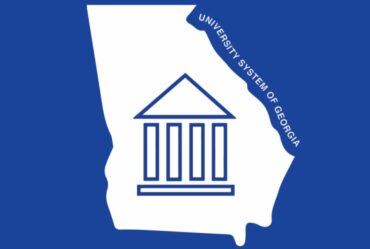
The University System of Georgia’s Board of Regents recently passed a series of regulations that curb diversity, equity and inclusion initiatives across the system’s 26 universities, establishing institutional neutrality on political issues and strengthening its prohibition of diversity statements in hiring.
Now the hard part begins, as enforcement will be a key component to the policies’ success, according to some watchdogs.
“These are just words on paper,” David Bray, a professor of finance at Kennesaw State University and major outspoken critic of DEI in Georgia universities, told The College Fix.
Bray said he is enthusiastic about the new policies, but they are only the first step in a longer fight: “I give them kudos, but now the real work must begin.”
Laura Beltz, director of policy reform at the Foundation for Individual Rights and Expression, also said the policy changes in Georgia are a positive step, but it will likely be difficult for USG to enforce political neutrality.
“Just generally speaking, when we see universities committing to institutional neutrality, it’s more of a set of principles that university leadership is going to follow,” she told The Fix. “Typically, it’s not really an enforceable document.”
System leaders did not respond to requests for comment about how they plan to enforce the new rules.
Last year, the system stopped requiring diversity statements in hiring as an HR position, but at November’s board meeting, the regents codified the restriction into policy, barring “ideological tests, affirmations, and oaths, including diversity statements,” according to the policy changes.
“These proposed updates strengthen USG’s academic communities,” the USG Board of Regents said to The College Fix in a statement. “They allow institutions to foster a campus environment where people have the freedom to share their thoughts and learn from one another through objective scholarship and inquiry. They reflect an unyielding obligation to protect freedom, provide quality higher education and promote student success.”
University of Georgia, Georgia Tech, Georgia State University, and Kennesaw State University did not respond to requests for comment. Several Georgia professors also did not respond to The College Fix’s requests for comment.
“We are committed to hiring those who have the experience and credentials necessary to do their jobs well, without regard to their beliefs, opinions or identities,” said a Georgia College and State University statement to The College Fix. “Our primary focus has always been to prepare students to enter the workforce ready to make a positive impact on the planet, and the new policies do not alter our commitment to that tradition going forward.”
FIRE’s Beltz said the policy changes in Georgia are a positive step for universities.
“It’s difficult to divorce DEI statements from political questions that people have disagreement on, and so it can sort of function as a litmus test,” she said. “I think it’s good to see that the University System of Georgia is banning the use of those and instead allowing applicants to talk about their experiences with diversity in the classroom through other parts of that application process — the interview itself or talking about how they’ve worked with various students in their classrooms previously.”
On campuses, professors are split on the issue.
According to a study from FIRE in 2022, exactly 50 percent of faculty surveyed stated that DEI statements are “a justifiable requirement for a university job,” while the other half stated that the statements are “an ideological litmus test that violates academic freedom.”
Beltz said policies like USG’s could be adopted by more universities across the country.
“Even DEI officers are moving away from something like a DEI statement that just isn’t a very meaningful way at helping students from diverse populations and moving towards more meaningful ways of doing that than just an applicant submitting a statement,” Beltz said.
Along with the hiring changes, system leaders are officially requiring institutional neutrality on political issues across its member universities, with exceptions carved out for issues that directly relate to the institution’s mission.
“The BOR went a step further to ensure our institutions remain neutral on social and political issues while modeling what it looks like to promote viewpoint diversity, create campus cultures where students and faculty engage in civil discourse, and the open exchange of ideas is the norm,” the USG Board of Regents said to The College Fix in its statement.
It joins dozens of other universities and state university systems that have adopted similar positions within the past year. Political neutrality became a particularly prescient issue after the recent pro-Palestinian encampments and calls for divestment from Israel on college campuses in the spring of 2024. It was first adopted as a policy at University of Chicago, which released the Kalven Report that outlined how institutional neutrality supported free expression on campus.
Bray said he hopes system leaders even go further in their efforts to curb DEI.
“There’s no better time than now to start,” he told The Fix. “We have the numbers to see how much money is used to infect our universities with politically left dogma all under the guise of DEI, so there’s no excuse for why the USG doesn’t have the financial resources to do the right thing by all Georgia taxpayers, and that’s to instill American values, get back to the individualism and away from the tribalist identity tribes of the left.”
Just last year, Florida did take that fight further than USG, passing the “Stop WOKE Act,” which prevented professors from teaching certain concepts related to “race, color, national origin, or sex” and banned any instruction that caused a person to “feel discomfort, guilt, anguish, or any other form of psychological distress on account of his or her race, color, sex, or national origin.” The law was partially struck down in federal court.
“It sought to actually control what faculty can teach about and speak about in the classroom with regard to DEI. And that’s problematic because it’s infringing on their academic freedom rights,” Beltz said. “I could see a state going in that direction and going too far, stepping into the classroom and infringing on faculty rights.”
MORE: DEI isn’t gone — it’s rebranding, professor warns
IMAGE: University of Georgia / Red & Black
Like The College Fix on Facebook / Follow us on Twitter





Please join the conversation about our stories on Facebook, Twitter, Instagram, Reddit, MeWe, Rumble, Gab, Minds and Gettr.